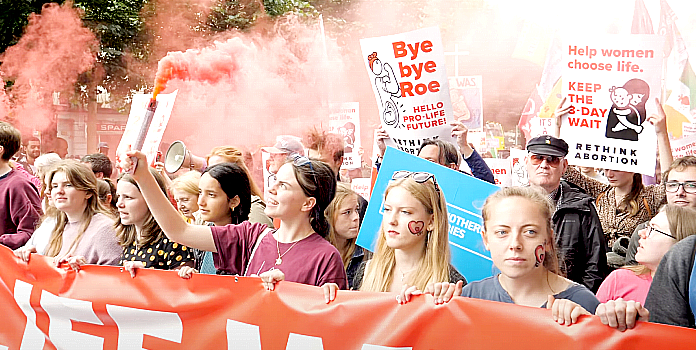(Headline USA) Lawyers for the state of Georgia urged a federal appeals court to allow the state’s 2019 abortion law to take effect now that the U.S. Supreme Court has ruled there is no constitutional right to an abortion.
Ruling in a case out of Mississippi, the Supreme Court on June 24 overturned the landmark 1973 Roe v. Wade ruling, which had undermined states’ rights by claiming a federal right to an abortion. Because the groups challenging Georgia’s law relied on that precedent, they “now have no case,” lawyers for the state wrote in a brief submitted Friday to the 11th U.S. Circuit Court of Appeals.
Attorneys for groups challenging the law acknowledged that the ruling allows the state’s ban on many abortions to take effect. But they argued in their brief that a provision that grants “personhood” to a fetus should remain blocked.
The Georgia law bans most abortions once a “detectable human heartbeat” is present. Cardiac activity can be detected by ultrasound in cells within an embryo that will eventually become the heart as early as six weeks into a pregnancy.
The Georgia law includes exceptions for rape and incest, as long as a police report is filed. It also provides for later abortions when the mother’s life is at risk or a serious medical condition renders a fetus unviable.
The personhood provision gives a fetus the same legal rights as people have after birth.
A federal judge in 2020 found Georgia’s law unconstitutional based on the precedent that had endured for nearly 50 years. The state appealed that ruling. A three-judge panel of the 11th Circuit in September said it would wait to rule on the Georgia appeal until the Supreme Court ruled in the Mississippi case.
Hours after the Supreme Court ruled in that case, lawyers for the state asked the 11th Circuit to allow Georgia’s law to take effect. The 11th Circuit gave the lawyers on each side three weeks to submit briefs explaining how the Supreme Court ruling affects the Georgia appeal. That deadline was Friday.
Lawyers for the state wrote in their brief that the appeals court should reverse the lower court’s decision and lift the injunction that had kept the law from taking effect.
Lawyers with several leftist organizations, including the American Civil Liberties Union, Planned Parenthood and the Center for Reproductive Rights, who had filed the lawsuit challenging the law on behalf of Georgia abortion providers and an advocacy group acknowledged in their brief that the Supreme Court ruling allows the limits on abortions provided for in the 2019 law. But they argued that the personhood provision is unconstitutionally vague and should remain blocked.
Lawyers for the state argue that the personhood provision would support families before a child is born. They note that it would expand child support obligations to include medical and pregnancy-related expenses and would allow parents to claim a fetus as a dependent for state income tax purposes. They reject arguments that it is unconstitutionally vague.
But the lawyers challenging the law argue that the vagueness of the personhood provision creates uncertainty for doctors who might be hesitant to provide critical medical care for pregnant patients out of fear of being prosecuted. And that could lead to delayed diagnostic and treatment services for patients, the brief says.
Adapted from reporting by the Associated Press

